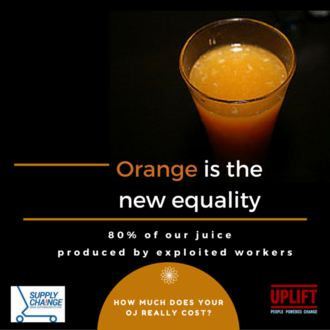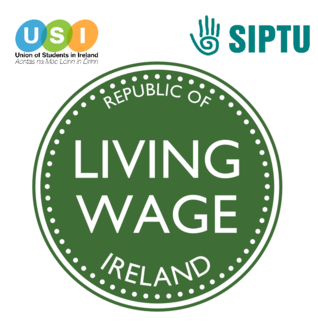- Featured
- Animal Rights
- Anti-racism
- Arts & Culture
- Children
- Climate
- Corporate accountability
- Crime
- Disability rights
- Economic
- Education
- Environment
- Food and Sustainable Production
- Gender Equality
- Governance and Transparency
- Health
- Housing
- LGBT Rights
- Mental health
- Northern Ireland
- Planning
- Privacy and Data Protection
- Rural Inequality
- Social Justice
- Trade
- Transport and Infrastructure
- Workers' Rights
- More
-
Reform the FAIThis is important because football is one of the most important sport in Ireland. Too many clubs that were in the league have gone bankrupt due to the incompetence of the FAI. Currently, teams such as Waterford United are on the brink of bankruptcy. This has to change. By signing this petition, you're showing the FAI you care about the League of Ireland's future10 of 100 SignaturesCreated by Morgan Ocallaghan
-
Irish arts, culture & heritage needs adequate funding & a dedicated government DepartmentIreland has one of the lowest levels of public funding and support for arts and culture in all of Europe. Successive Irish governments claim to honour and take pride in our rich cultural heritage, celebrated artists and world-class artistic achievements but consistently fail to nurture and support the creative community. The Arts, Culture and Heritage communities have suffered disproportionately under the last government. The impact in the sector, on jobs, community and education as well as on our international reputation has not been assessed in any credible way by the incoming government. We demand a) an independent adequately resourced Department is created b) a commitment to raising funding the arts, cultural and heritage sector to European average of 0.6% c) publication of a national cultural policy that has the endorsement of the community. CÉN FÁTH A BHFUIL SÉ SEO TÁBHACHTACH? As na tíortha uile san Aontas Eorpach, cuireann Éire an méid is lú maoinithe agus tacaíochta poiblí ar fáil do na healaíona agus don chultúr.. Bíonn Rialtas i ndiaidh Rialtas sa tír ag maíomh as an mbród agus as an mórtas a bhíonn orthu as saibhreas ár n-oidhreacht cultúir, as ár n-ealaíontóirí iomráiteacha agus as ár sár-ghaiscí ealaíne ach, ag an am céanna, déanann siad faillí orthu siúd atá ag gabháil do na healaíona, gan cóir ná tacaíocht ceart a chur ar fáil dóibh. Tá na pobail atá ag gabháil do na healaíona, don chultúr agus don oidhreacht tar éis fulaingt as cuimse faoin rialtas deireanach. Níl aon mheasúnú sásúil déanta ag an rialtas atá tagtha i gcumhacht ar an tionchar a bhí aige seo ar an earnáil, ó thaobh fostaíochta de, ó thaobh an phobail agus an oideachais de ná ó thaobh ár gcáil go hidirnáisiúnta. Táimid ag éileamh a) go gcruthófar Roinn neamhspleách a mbeidh dóthain acmhainní tugtha di; b) gealltanas go n-ardófar maoiniú earnáil na n-ealaíon, an chultúir agus na hoidhreachta go dtí meán-chaiteachas na hEorpa, 0.6% den OTI; agus c) go bhfoilseofar polasaí cultúir náisiúnta a mbeidh tacaíocht an phobail aige.15,564 of 20,000 SignaturesCreated by John O'Brien
-
Make Orange Juice Fair!While retailers across Europe make enormous profits from the sale of store brand (own brand) orange juice, the majority of workers and farmers who harvest and process the fruit and its juice live in bitter poverty. Orange juice production is also utterly destructive to the environment; the industry is characterised by excessive use of pesticides.22 of 100 SignaturesCreated by Shauna Kelly
-
Introduce a Living Wage for All WorkersMaking sure that all workers are paid at least the living wage of €11.45 per hour will create a better standard of living for all people. It will reduce poverty, boost local economies and ensure an inclusive society for all people. For more info on fair working conditions, visit: http://www.ictu.ie/charter/2,242 of 3,000 SignaturesCreated by Dave Curran
-
Migrants for Ireland: Election ManifestoTwelve percent of the population of Ireland are migrants, of whom so many have the right to vote. Migrants bring enterprise and initiative, and in order to actively participate in Irish society, migrants must be visible in all spheres of Irish life and be represented proportionally to our number in the Irish population in all decision making processes. Irish political actors have done little or nothing to reach out to immigrants during elections. Integration has dropped off the radar and from the programmes of all political parties. A diverse republic needs inclusive politics and institutions that reflect the composition of a diverse society. Government bodies and local authorities need to do much more to engage with immigrant communities. We, the Migrant-Led Coalition, are calling on all politicians and candidates to sign up to our election manifesto and pledge to represent the needs of their migrant constituents.11 of 100 SignaturesCreated by Farah Azadi
-
Create a Citizens' Convention for a Post-Carbon IrelandSince pre-industrial times, our world has warmed by a global average of almost 1 degree celsius, due primarily to greenhouse gas pollution from human activities. This has already triggered serious planetary-scale climate disruption, and is having devastating humanitarian impacts on vulnerable communities in diverse geographical regions. But we are not powerless. We can still act: both to limit the speed and ultimate severity of global climate impacts, and to brace our own society for the potentially drastic shocks ahead due to the climate disruptions we have already initiated. This will require urgent and radical societal transformation. That can only happen with the willing engagement and support of the people. We need a genuine, sustained process that allows every single citizen and community in Ireland to fully consider the range and nature of the changes we face, and to advance policies and actions that are commensurate with them. Only in this way can we hope to create the unity and solidarity that is essential to create a strong, resilent, and genuinely sustainable society. We need a Citizens' Convention for a Post-Carbon Ireland.1,110 of 2,000 SignaturesCreated by Barry McMullin
-
Ban TikTok Live in Ireland for Public Safety and AccountabilityBanning or strictly regulating **TikTok Live in Ireland is important because it poses serious social, financial, and safety risks, particularly to children and young people. First, TikTok Live promotes the idea of easy money, encouraging people to beg online rather than develop skills, education, or a work ethic. This creates long-term harm by normalising dependency instead of productivity. Second, there is no transparency or accountability around gifting: • Who is sending money? • Why are they sending it? • Where is the money coming from? • What is expected in return after gifts are sent? This lack of clarity opens the door to financial exploitation, manipulation, and inappropriate influence, especially involving minors and vulnerable individuals. Third, TikTok Live exposes children to unsafe interactions, including pressure, grooming risks, and emotional manipulation. Young users may feel encouraged to perform, beg, or behave inappropriately to receive money, which is harmful to their development and dignity. Finally, the long-term impact on society is serious. When a generation grows up believing that going live and receiving gifts is a replacement for honest work, it weakens social values, damages mental health, and increases future economic dependency. For these reasons, action is necessary to protect children, uphold social responsibility, and safeguard Ireland’s future generation3 of 100 SignaturesCreated by Muhammad saqib butt
-
Support Working Mothers in Ireland – Reform Maternity Leave and Childcare NowThis petition speaks to a critical gap in Ireland’s maternity and childcare systems—one that affects thousands of women and families every year. Right now, working mothers are being punished for contributing to society: • The state provides no financial support during the final 16 weeks of maternity leave—leaving mothers without income, even when no childcare is available for infants under 12 months. • Maternity benefit is flat-rate, unrelated to income or tax paid, creating financial hardship. • Childcare waiting lists are 12–18 months long, yet women are expected to return to work after 6 months. • Women face lost pension contributions and healthcare costs while on leave—deepening the gender gap. First letter sent to the Government of Ireland on 20th May 2025 (full letter link https://docs.google.com/file/d/1KGTvpZDcaKTbiOquWvgjv0YIWljZeKwX/edit?usp=docslist_api&filetype=msword) To: The Government of Ireland — especially the women who lead our country Subject: A Plea for Real Change in Maternity Support, Childcare, and Equity for Working Mothers in Ireland Dear Ministers, TDs, and all with power to make real change, I write this letter with a full heart, a weary mind, and deep concern for the state of maternity and childcare support in Ireland. I speak as a woman who believes in hard work, resilience, and contribution. And yet, I now ask: How has Ireland let its working women down so deeply and for so long? My Journey: Hard Work Without a Safety Net I’ve been working since I was 15. Now 36, I’ve built a career in Human Resources. I supported myself through college—working 20 hours a week, every summer, without any grants, as my father’s hard-earned income excluded me from supports. I’ve never expected handouts. I’ve worked hard and built a life brick by brick. I purchased a home in County Dublin—a three-bedroom semi-detached property—for over €525,000. As a second-time buyer with a self-employed husband, we were excluded from any government schemes. Still, we managed our mortgage and rising costs through sheer determination and work ethic. A Time of Joy… Shadowed by Fear In January 2025, we received the news: we were expecting our first child. Excited and nervous, we began to plan. I’ve remained in work despite difficult pregnancy symptoms, with the support of my employer. But as I sat to plan maternity leave, reality hit hard. I contacted over 20 childcare providers within a 20km radius. None would accept a child under 12 months. Most told me to get on a waiting list after the baby was born, with average wait times of 12–18 months. My plan to return to work after 26 weeks suddenly seemed impossible. Maternity Benefit: Inadequate, Unfair, and Disconnected from Reality I’m grateful my employer offers maternity top-up for the first 26 weeks. Without it, we couldn’t afford to start a family. But the lack of any state support during the final 16 weeks—despite national recommendations for parental care during a child’s first year—is unacceptable. Our monthly expenses exceed €4,000: mortgage, insurance, utilities, car, groceries. I approached my bank to explore options like a mortgage moratorium or interest-only payments, but was told I’d need to be in arrears first. In other words—I must fail before I qualify for help. This is not just my issue. Many women I know are quietly facing the same situation: unable to return to work, unable to stay at home without falling into debt, unsupported by the state despite decades of contributions. A System That Punishes Contribution How is it possible that if I had never worked, I might now be better off? Let’s break it down: • Maternity Benefit: A flat rate that doesn’t reflect my earnings or tax history. • Extended Leave: 16 weeks of unpaid leave—no state support. • Parents Benefit: Too low to keep a roof over our heads. • Healthcare: Employer-paid health insurance may be lost or owed back after unpaid leave. This is a system that punishes responsibility. It penalises work, discourages independence, and widens the gender gap by undermining the financial stability of mothers. It’s out of touch with today’s reality. The Emotional Toll I should be enjoying this time, preparing for my daughter’s arrival in October. Instead, I’m battling stress, sleepless nights, and financial uncertainty. Will I fall into debt? Will I return to work earlier than planned? Will I owe money to my employer for continuing healthcare? These are not thoughts a pregnant woman should have. We are told to plan our families, support the economy, and bridge the gender gap. Yet we’re left without the tools to do it. How can we be asked to raise the next generation while being economically abandoned? A Call for Real, Urgent Reform To the Ministers and leaders of this country—especially the women: how can you let this continue? How can Ireland claim to be progressive while mothers are pushed to the brink just for having children? We need you to act. Not in a year. Not after “review.” Now. We call on you to: 1. Review the maternity benefit system – Introduce a tiered model tied to income and contributions. 2. Fund extended maternity leave – Support families during the 16 weeks of unpaid leave. 3. Solve the childcare crisis – Increase capacity, affordability, and access for children under 12 months. 4. Protect financial stability for women – Ensure pensions, healthcare, and job protections during leave. 5. Implement equitable policies – Recognise that a flat-rate system penalises contributors and working-class families. In Closing I am writing this letter because I believe in Ireland and its people. But I do not believe in a system that abandons women during one of the most vulnerable and meaningful times of their lives. We need real reform. And we need it now. I speak on behalf of every mother who returned to work too soon, every woman who delayed starting a family due to fear, and every child who lost valuable time with a parent because the system made no space for them. Please—do better. We are not asking for more than we deserve. We are asking for fairness, dignity, and the right to raise our children without being penalised. I have started a public petition to amplify this call. The support behind it is growing. I hope those in power will not only hear us—but finally act. Sincerely, A hard-working woman A mother-to-be A voice among many38 of 100 SignaturesCreated by Corina Zambra
-
Ban unpaid placements for students!Because people deserve to be paid for the work they do.2 of 100 SignaturesCreated by Yusuf Murray
-
Abolish property tax for pensionersDue to the unprecedented rise in prices ie; heating oil/ fuel diesel/petrol/ groceries etc; us pensioners are put in a very precarious situation of hardship which is getting worse each day. it is becoming harder and harder to make ends meet, and no letup. Pensioners must stand together and make the government see the seriousness of our plight5 of 100 SignaturesCreated by Kevin Doyle
-
Keep AIB cash banks in WaterfordIreland has an Ageing population. There must be continued provision and resourcing of off-line alternatives to digital access to ensure equal access for those who are not using the Internet. (Digital Inclusion and an Ageing Population - published October 2021).2 of 100 SignaturesCreated by Marion O'Mara
-
Keep Cash Services in AIB RaheenAIB is moving 70 of their branches to cashless banking. [1] Not only will going cashless mean no notes, coins, cheques, foreign exchange, bank drafts - it will remove any drop safes, night safes and ATMs outside. This is going to cause huge hardship for many people - especially older and vulnerable people, disabled people, immigrant workers, low income families, local businesses, and people who don’t have access to the internet. The greed and recklessness of banks, including AIB bosses, played a crucial role in bringing about the financial crash. [2] Homes were repossessed by banks, families lost their incomes, young and not-so-young people were forced to emigrate, businesses had to close. We cannot stand by while our majority state-owned bank hurts our communities again. Whether large corporations (such as AIB) want to admit it or not, physical cash flow is crucial to the success and stability of our communities. We cannot sit by and allow a bunch of people in offices make decisions about what our future will look like. [1] https://www.rte.ie/news/business/2022/0719/1311026-aib-to-turn-70-branches-cashless-expand-an-post-deal/ [2] https://pai.ie/bank-bailout-costs-state-nearly-e42-billion/ https://www.bbc.com/news/world-europe-325169421 of 100 SignaturesCreated by Ezra LePoidevin


.jpg)



